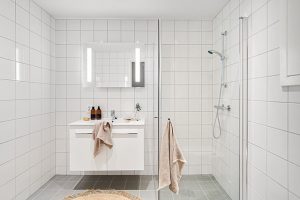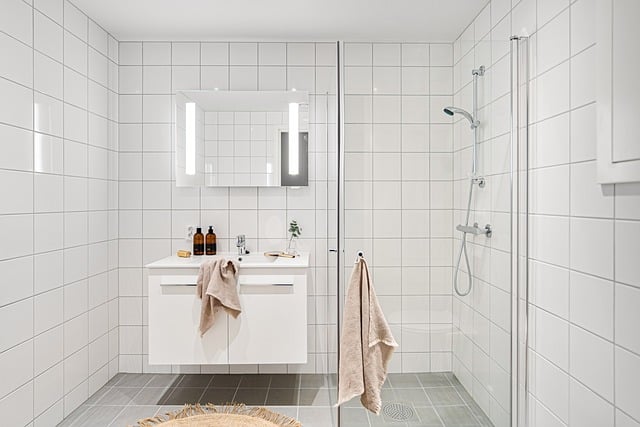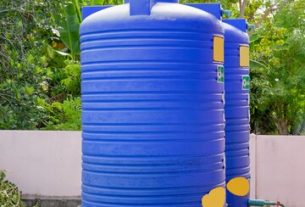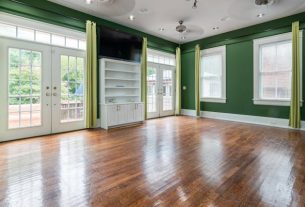When planning a bathroom renovation, it’s easy to get caught up in the excitement of choosing tiles, fixtures and colour schemes. However, one important aspect often overlooked is waterproofing. Proper waterproofing is essential in any bathroom renovation project, as it prevents water damage, mould growth and structural issues. Let’s dive into why waterproofing should be a priority and how it can save you from costly repairs in the long run.
The Importance of Waterproofing
Prevent Water Damage: Bathrooms are exposed to moisture daily, from showers and baths to sinks. Without proper waterproofing, water can seep into the walls, floors and ceilings, causing significant damage. Over time, this can lead to swelling, warping, and even structural weakening of the building. Waterproofing shower and bathroom areas ensures that water stays where it should, preventing costly repairs and maintaining the integrity of your home.

Avoid Mould and Mildew: Moist environments are a breeding ground for mould and mildew. These unsightly and potentially harmful fungi can grow quickly in areas with water leakage or poor ventilation. Mould not only damages surfaces but can also pose health risks, especially for those with respiratory issues. Proper shower waterproofing and sealing can significantly reduce the risk of mould growth, keeping your bathroom clean and safe.
Enhance Durability: A well-sealed bathroom lasts longer. Waterproofing adds a protective layer to your bathroom’s surfaces, making them more resistant to wear and tear. This means your tiles, walls, and floors will stay in better condition for longer, saving you money on replacements and repairs.
Increase Property Value: Investing in quality waterproofing can increase your home’s value. Potential buyers often look for well-maintained properties, and a properly waterproofed bathroom is a significant selling point. It assures buyers that the bathroom is free from hidden water damage issues, making your home more attractive on the market.
Key Areas to Waterproof
When it comes to bathroom waterproofing, some key areas need attention:
- Shower Area: The shower area is the most vulnerable to water exposure. Waterproofing the shower involves applying a waterproof membrane to the walls and floor before tiling. This membrane acts as a barrier, preventing water from seeping into the underlying structure.
- Floors and Walls: Bathroom floors and walls should be waterproofed, especially in areas prone to splashes and spills. This includes the space around the bathtub, sink, and toilet. A proper waterproofing system ensures that water does not penetrate the subfloor or wall cavities.
- Corners and Junctions: Corners and junctions are common points of water leakage. These areas should be carefully sealed with waterproofing materials to prevent water from finding its way into hidden spaces.
FAQ
1. What is waterproofing?
Waterproofing is the process of applying a protective barrier to surfaces to prevent water from penetrating. In bathrooms, this usually involves using a waterproof membrane under tiles and around fixtures.
2. How long does waterproofing last?
With proper installation, waterproofing can last for many years. However, regular inspections and maintenance are recommended to ensure its effectiveness.
3. Can I waterproof my bathroom myself?
While DIY waterproofing kits are available, it is highly recommended to hire a professional for shower waterproofing and sealing in Sydney. A professional ensures that the job is done correctly and to the required standards.
4. How much does waterproofing cost?
The cost of waterproofing varies depending on the size of the bathroom and the specific areas being waterproofed. It’s a worthwhile investment, considering the potential cost of repairs from water damage.
5. What are the signs of poor waterproofing?
Common signs include peeling paint, mould growth, musty odours, and visible water stains. If you notice any of these, it might be time to check your bathroom’s waterproofing.
Waterproofing is an important step in any bathroom renovation project. It protects your home from water damage, mould growth, and structural issues. Prioritising waterproofing, especially in high-moisture areas like showers, ensures a durable and safe bathroom environment. Don’t overlook this essential aspect of your renovation—invest in quality waterproofing and enjoy peace of mind knowing your bathroom is well-protected.



